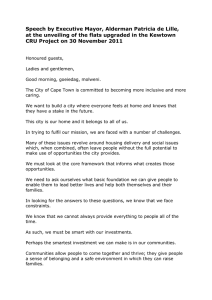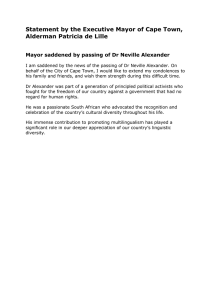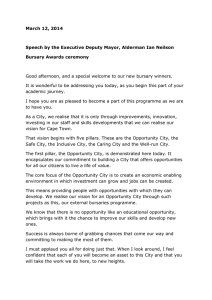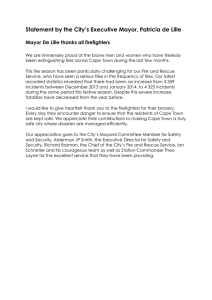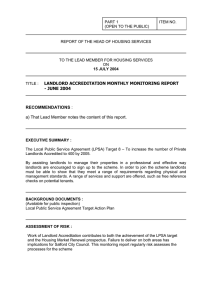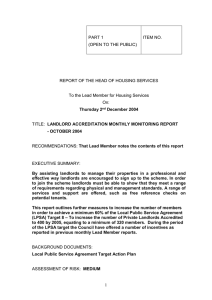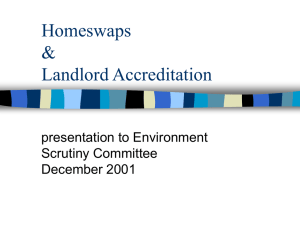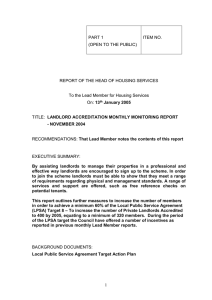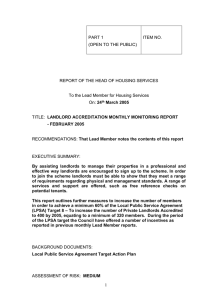Speech by the Executive Mayor, Alderman Patricia de
advertisement
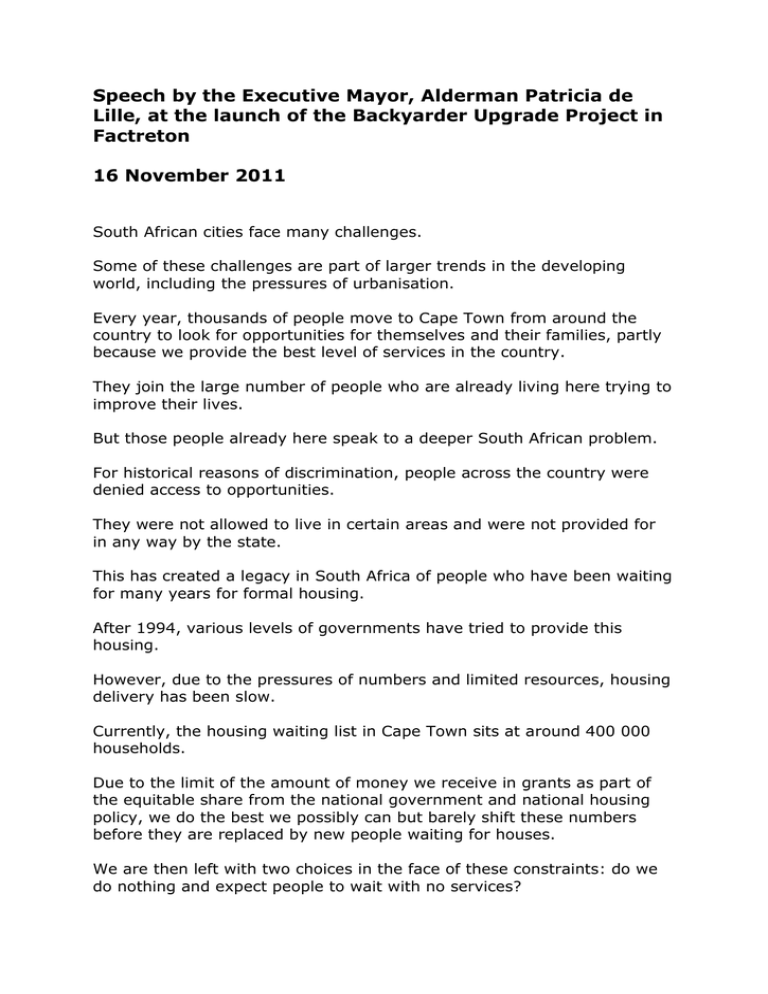
Speech by the Executive Mayor, Alderman Patricia de Lille, at the launch of the Backyarder Upgrade Project in Factreton 16 November 2011 South African cities face many challenges. Some of these challenges are part of larger trends in the developing world, including the pressures of urbanisation. Every year, thousands of people move to Cape Town from around the country to look for opportunities for themselves and their families, partly because we provide the best level of services in the country. They join the large number of people who are already living here trying to improve their lives. But those people already here speak to a deeper South African problem. For historical reasons of discrimination, people across the country were denied access to opportunities. They were not allowed to live in certain areas and were not provided for in any way by the state. This has created a legacy in South Africa of people who have been waiting for many years for formal housing. After 1994, various levels of governments have tried to provide this housing. However, due to the pressures of numbers and limited resources, housing delivery has been slow. Currently, the housing waiting list in Cape Town sits at around 400 000 households. Due to the limit of the amount of money we receive in grants as part of the equitable share from the national government and national housing policy, we do the best we possibly can but barely shift these numbers before they are replaced by new people waiting for houses. We are then left with two choices in the face of these constraints: do we do nothing and expect people to wait with no services? Or do we try and help in whatever way we can? This administration chooses to help. When I campaigned to be mayor, I said that backyarders would be a priority of my administration. For too long, people have been forced to make a life for themselves without all the help that they need. That help means access to water, sanitation and electricity: access to services. I am pleased today that we are reaching the next level of our backyarder upgrade programme. This programme is the first of its kind in the country and is the delivery of a major campaign pledge. It has involved consultation with all stakeholders, including City officials, representatives from all backyarder communities across the metro and landlords. I would like to thank backyarders for engaging with us and helping us find solutions. I would also like to thank landlords for realising that we all need to develop this city together. Landlords remain a central partner in this process. In Factreton today, we unveil examples of the units to be provided to backyarder households. The units provide access to clean water and washing facilities and will provide electricity as well. It is the ultimate demonstration that the money I assigned to the backyarder programme in June is being put to good use. The families who benefit from these units will now be able to access the water and electricity that this City provides to residents, especially the basic amounts provided to the poor as part of our indigent policy. It is also but the beginning of our programme to roll out services to backyarder communities living on Council land across the metro. Over the next five years, we will continue to conduct engineering surveys of backyarder communities, assessing the scale of services needed in each community. Once those assessments have been completed, we will then roll out units providing services to families. These services will provide dignity and better living conditions. In partnership, we are demonstrating that we can find innovative solutions to our problems. And in so doing, we build a more caring and inclusive city, together.
